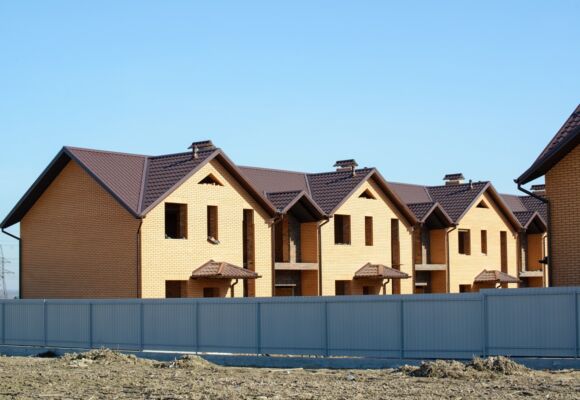If you are buying a property, the issue of it being leasehold or freehold will come up. The issue refers to the land where the property is located. If there is more than one person’s property on the same area of land – a flat, for example, or a building where two plots overlap, things can get a little complicated regarding who actually owns that land.
This is where freehold and leasehold come into play.
The difference between leasehold and freehold
It is essential that you understand the concept of freehold and leasehold before you buy a property and that you know which category your potential property falls into. This can have far-reaching consequences for you and the property’s future and potential. It also has an impact on additional costs that you may be required to pay even if you own the property outright.
If you buy a freehold property, you will buy the bricks and mortar but also own the land that it is sitting on. This is straightforward and very common if you are buying a plot of land with a house on it.
If you buy a leasehold property, you will own the property but not the plot of land that it sits on. This is usually the case if, for example, you are buying a flat which sits above other flats on the same square meterage of land. The leasehold is essentially owned by a ‘landlord’ and the property that you own is essentially ‘leased’ from the landlord. This will last for a fixed period of time before it goes back to the freeholder – the ‘landlord’.
If you buy a leasehold property, you might need to pay other costs to the freeholder. It is common to be asked to pay costs such as:
- Ground rent
- Administration fees
- Maintenance fees
- A service charge
These costs are in addition to your mortgage, bills, and insurance.
Included in these costs should be the maintenance and upkeep of communal areas and facilities, including parts of the building itself. Leaseholders will also need to pay a part of the building’s insurance.
Freeholders do have the right to take a leaseholder to court and can threaten them with eviction should payments be late or not made. Although the values that the leaseholders must pay are set by the freeholder, the leaseholder does have the right to be given a breakdown of how these costs are calculated and what the money is being used for.
If certain costs are to be incurred, the freeholder must first consult with the leaseholder if costs:
- Are over £250
- Are going to last for over a year – regardless of the amount
- Are going to cost over £100 a year
How long does a lease last?
The length of a lease is critical to whether someone should buy a property. Once the length of the lease is set, it does not change when the ownership of the property changes hands. This means that when you buy a leasehold property you should be aware of the length of time that is left on the leasehold. This is often critical to having a mortgage agreed as well as your ability to sell the property on.
Mortgage companies will often be reluctant to agree a mortgage on properties with a lease of less than 70 years. They will often require a lease of at least 25 – 30 years after the mortgage ends and can potentially impact the likelihood of you being able to sell the property later on.
There is also the possibility that the freeholder can increase the costs.
As a leaseholder, you do have the option of buying an extension to the lease. This can be costly, but many deem it to be worth it to enable them to buy the property as well as to sell it on. If a leaseholder has owned the property for over two years, and the original lease was for over 21 years, they have the option to extend the lease whenever they wish. This will incur costs, however, and leaseholders also run the risk of higher ground rent prices after the renegotiation.
Common problems with leasehold property
Owning a leasehold property is very common but it can sometimes present problems.
One problem is that sometimes the freehold is not owned by the owners of the properties themselves. In some cases, a new arrangement is made, known as ‘commonhold’. This is where the homeowners own the freehold between them, with the ‘commonhold association’ managing the area.
Some of the other common problems that can occur for leaseholders relate to the management of the property, such as high management fees, unfair service charges, and a lack of control over some of the work that is being done. Changes in the law mean that now leaseholders are able to set up their own management company to take on some of the management duties.
Bad management is another problem for some leaseholders. As long as it can be proven and over half of the qualifying tenants take part, leaseholders may buy the freehold of the building in ‘collective enfranchisement’.
Owning a leasehold property is common and as long as its length is adequate and costs are fixed for a good amount of time, this will not cause you any problems. It is important, however, that you fully understand the terms of your lease before you buy a property and the best way to do this is to ask a solicitor to look over the lease for you.
Contact Waldrons solicitors
Here at Waldrons our team of expert residential conveyancing solicitors are on hand to speak to you, get in touch today!
More information on Leasehold Reform Bill
More information on Moving Home
Last reviewed on 11/07/23 by Abigail Gray who is an Associate Solicitor
